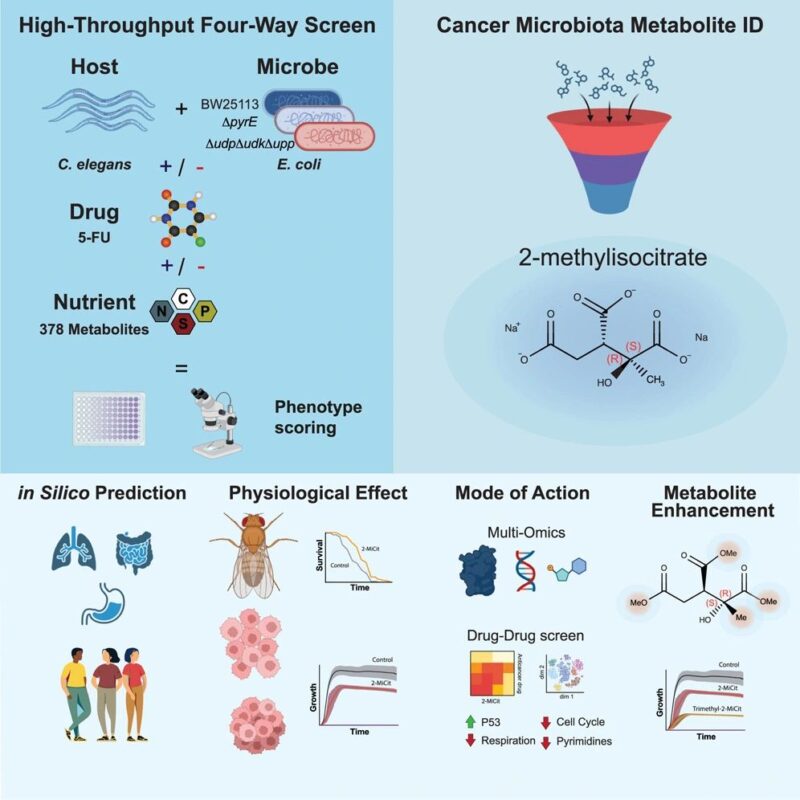Himanshu Mishra, Microbiologist at Zydus Lifescience, shared a post on LinkedIn:
“Chemotherapy modulation by a cancer-associated microbiota metabolite
Understanding how the microbiota produces regulatory metabolites is of significance for cancer and cancer therapy.
Using a host-microbe-drug-nutrient 4-way screening approach, we evaluated the role of nutrition at the molecular level in the context of 5-fluorouracil toxicity. Notably, our screens identified the metabolite 2-methylisocitrate, which was found to be produced and enriched in human tumor-associated microbiota. 2-methylisocitrate exhibits anti-proliferative properties across genetically and tissue-diverse cancer cell lines, three-dimensional (3D) spheroids, and an in vivo Drosophila gut tumor model, where it reduced tumor dissemination and increased survival.
Chemical landscape interaction screens identified drug-metabolite signatures and highlighted the synergy between 5-fluorouracil and 2-methylisocitrate. Multi-omic analyses revealed that 2-methylisocitrate acts via multiple cellular pathways linking metabolism and DNA damage to regulate chemotherapy.
Finally, we converted 2-methylisocitrate into its trimethyl ester, thereby enhancing its potency. This work highlights the great impact of microbiome-derived metabolites on tumor proliferation and their potential as promising co-adjuvants for cancer treatment.
Highlights:
- Host-microbe-drug-nutrient 4-way screen identifies 2-methylisocitrate regulating 5-FU.
- 2-methylisocitrate inhibits mitochondrial IDH and causes nucleotide imbalance and DNA damage.
- Cancer-microbiome metabolites have double-edged sword effects in chemotherapy.
- Natural microbial metabolites can be modified into enhanced therapeutic agents.”

More posts featuring Himanshu Mishra.


